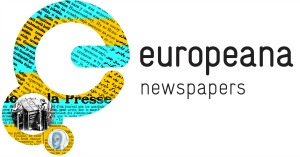Every month we’ll be highlighting one partner of the Europeana Newspapers Project on this blog. These articles will give you the ‘inside story’ about our partners, their specific role within the project and the various challenges that arise with the refinement and aggregation of historical newspapers. This month we feature the university library “Svetozar Markovic” in Belgrade.
University Library “Svetozar Markovic” is the oldest and largest university library in Serbia, and the central library of the University of Belgrade.
Our primary target groups are students, teachers and researchers, but we are open to all citizens. The rich library collection consists of scientific and special publications in all shapes and sizes, including electronic publications. Since we have a multitude of content to offer offline, 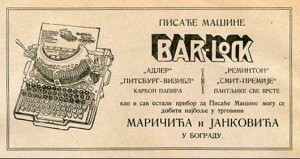 we decided to digitise and create online accessible collections available to users worldwide. The Europeana Newspapers Project has opened the gates for us and helped us to push our serial collections into the digital world.
we decided to digitise and create online accessible collections available to users worldwide. The Europeana Newspapers Project has opened the gates for us and helped us to push our serial collections into the digital world.
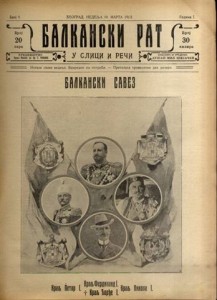
The Importance of Newspapers
It is never easy to recognize the true importance of newspapers from their official definition that often refers to the form and frequency of publishing. However, if we take a look at the content, it illustrates all segments of human life throughout decades. Newspapers are a mirror of everyday life, current events in society, politics, economy, culture and arts, as well as scientific achievements. As a matter of fact, libraries in Serbia opened their doors during the first half of 19th century as reading rooms for – guess what? Serial publications!
The University Library in Belgrade is proud to be part of the Europeana Newspapers Project because it gives us a chance to highlight the milestones in various fields of social and scientific development in Serbia before the 2nd World War.
The overall importance of the project consists of giving the users a richer version of historical events, quality digitised material for scientific research or just general information, plus an easy and accessible way to search through the collections. In addition, the project will provide a full-text search facility for many of its newspapers and this is has so far been greatly challenging to achieve, especially when it comes to old newspapers written in Cyrillic.
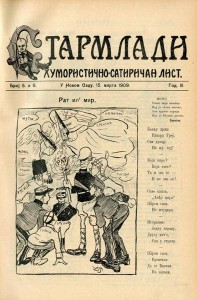 Our Role in the Project
Our Role in the Project
As a partner in the project, the University Library in Belgrade will deliver 408,000 digitised pages of Serbian newspapers and journals published before 1945. When choosing newspapers that fit the project’s goals, we were driven by the accessibility, a level of preservation and some technical limitations.
We wanted to digitise the titles for which all issues are available in our collection, so that the information they provided would be comprehensive. Some of the digitised newspapers are especially important as they were published during World War I (eg. Illustrated War Chronicles, Balkans War in Pictures and Words, War Journal and Official War Gazette) and thus complement nicely the project Europeana Collections 1914-1918.
We also chose various newspapers that help illustrate literary achievements from the end of the 19th and beginning of the 20th century. They include Strazilovo, Dawn, Sumadinka, New Spark and Podunavka.
To complete the picture, we added some of the most famous newspapers that are political and satirical, such as Bodljikavo Prase, Starmali, Starmladi, and those offering general information on everyday life: Srpsko Kolo, Belgrade Municipality Newspapers, Sunday, Star and Small Newspapers.
Digitisation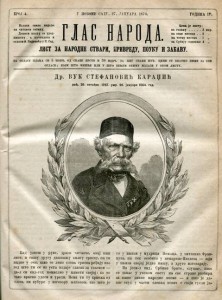 Challenges
Challenges
A huge challenge for the digitisation of old Serbian newspapers is the Optical Character Recognition (OCR) that will be provided for 408,000 pages. We are currently wrapping up work on the first 200,000 pages and expect to have the first results of our work later this month. Tests that were conducted earlier in Austria showed a high level of text recognition. This is a huge success since OCR for newspapers in Cyrillic, especially the early versions, is quite a challenge!
Workshop
In addition to our technical work, the University Library in Belgrade is also hosting the first of three workshops related to the Europeana Newspapers Project. It will take place on 13-14 June, 2013 in Belgrade and is intended for all partners and groups involved in the project, as well as all interested librarians. The participants will learn more about OCR, NER, instruments for evaluation of the techniques used and quality assessment. Most importantly, they will exchange experiences and identify possible solutions for the challenges we all face in the project.
